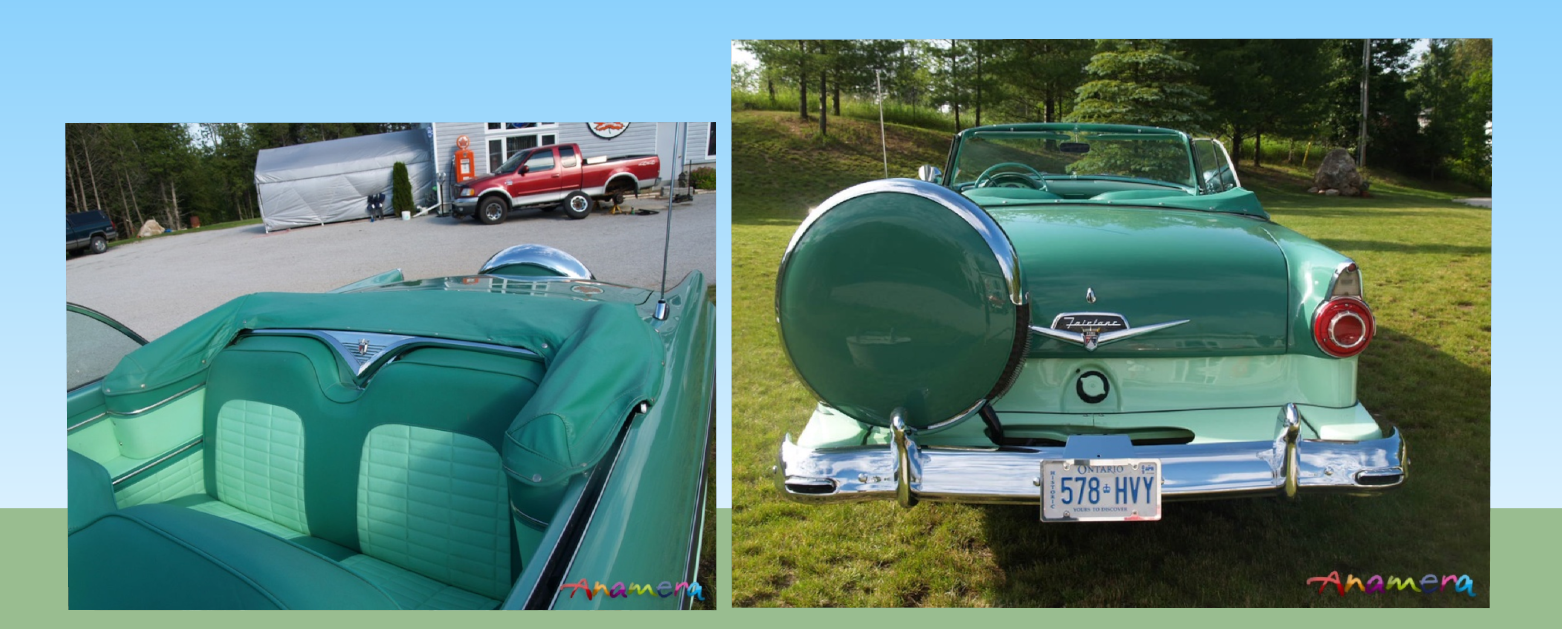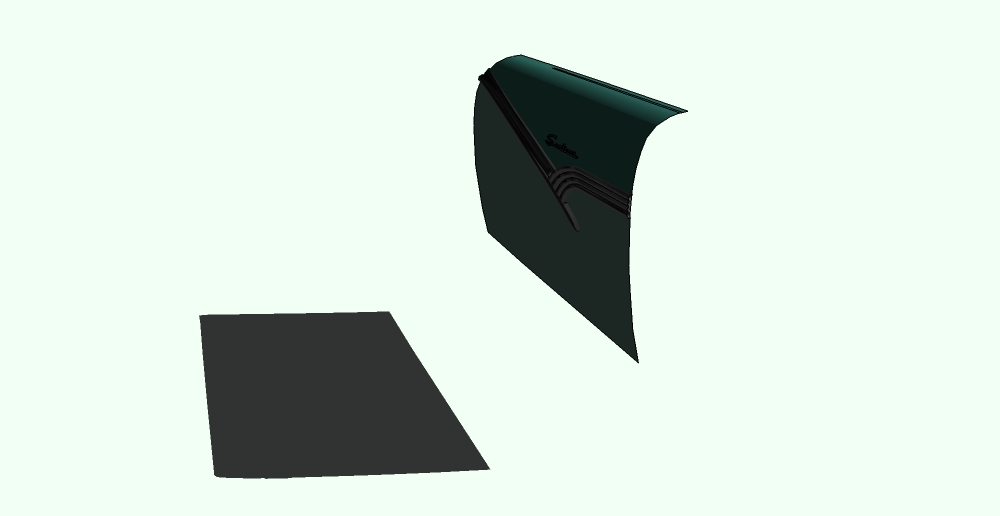[Solved]Shadows acting funky
-
@unknownuser said:
I don't know why this works, but if you change all the green materials to 99% opacity, the shadows appear. I also replaced your materials with new ones and the shadows also appeared. There must be something wrong with the way those materials were created/edited, but I don't know what that might have been.
Well, I can live with 99% opacity. As far as where the colors came from, it's been quite a while but I think I might have sampled them from a photo of an actual 56 Ford Sunliner with the color combination I wanted. But I don't see how that would have any bearing on the strange behavior.
Yep, found where I sampled the photos. Also sampled for the interior colors, guess that might explain the problems with the seats.
Very strange.

-
Hell,
If you "paint with default"......ford-fairlane-victoria-1956.jpg......will be the default.
I cannot explain why........though the model default is not "ford-fairlane-victoria-1956.jpg"
Charlie
-
@unknownuser said:
Hell,
If you "paint with default"......ford-fairlane-victoria-1956.jpg......will be the default.
I cannot explain why........though the model default is not "ford-fairlane-victoria-1956.jpg"
Charlie
I'm not really sure what you're saying here. I just sampled the colors I needed using the "Match Color On Screen" eyedropper.
-
Strangely when I open the skip the shadows work fine.

Maybe I'm missing something
-
@hellnbak said:
Well, I can live with 99% opacity
That's going to hurt performance. Transparency adds overhead to processing of the model in the viewport.
-
Have you tried without Hardware Acceleration? In case this is a graphic card / driver issue.
What card and driver version do you have? -
Ah! I know what this is!
I actually wrote about this some time ago: http://www.thomthom.net/thoughts/2012/03/the-secrets-of-sketchups-materials/
(Scroll down to Bug with Materials and Color Alpha Channel and see example and description of bug.)To fix all materials in your model, enter this one-liner in your Ruby Console:
Sketchup.active_model.start_operation('Fix Materials',true);Sketchup.active_model.materials.each { |m| c=m.color.to_a; c[3]=255; m.color=*c; };Sketchup.active_model.commit_operation -
Very nice model by the way!


-
You the man!!!
While I don't pretend to understand any of the reasoning behind it, it did the trick!
You are now on my Xmas card list
-
@tobobo said:
Strangely when I open the skip the shadows work fine.
Maybe I'm missing something
Maybe you had already run ThomThom's miraculous fix?
-
@hellnbak said:
While I don't pretend to understand any of the reasoning behind it, it did the trick!
It's a bug in the quirky design of SketchUp materials.
A material has a Color property - and Color property contains RGBA info.
Materials normally ignore the A value of the colour and use the Alpha property of the Material itself.
However, for some reason, when the Color property has the alpha value set to 0 the object doesn't case a shadow. And sampling materials with the Sample Color from Screen tool can in some cases set the wrong A value for the Color property.
This is a bug I've reported to the SketchUp team. -
@thomthom said:
@hellnbak said:
Well, I can live with 99% opacity
That's going to hurt performance. Transparency adds overhead to processing of the model in the viewport.
You mean that whenever I make a material transparent, even just a little transparent, it affects the processing of the model enough to hurt performance? Or did you say that just because the affected materials in this case pretty much involve the entire exterior and some of the interior of the model?
-
When a material is transparent the 3D render engine (SketchUp's viewport) need to perform more calculations in order to determine the colour of each pixel. As you see in the Styles setting you can set to Faster, Medium or Nicer. The better the slower. For max performance you can disable transparency all together. (I do that some times with heavy models with lots of glass or clip maps.)
-
Well, thanks again. And thanks to everyone who offered their advice and suggestions.
-
You need to set a template that uses as little resources as possible. Add eye-candy for export

-
@rich o brien said:
You need to set a template that uses as little resources as possible. Add eye-candy for export

Actually the computer I built a year or so ago seems to handle everything pretty well. Once in a while when moving a model the textures blank out for a few seconds, but if I run Purge (the plugin) it takes care of that. I've always wondered why Purge does that, even when nothing is actually purged. But then I also wonder how bread becomes toast

-
Because it handles does not make it necessary. My modeling template/style is minus all the fluff that makes output look nice.
-
don't know why, but if I just change the saturation value by 1 step, and then change it back, it works fine. (for example color_A16 is H:169 - if I change it to 170 and back to 169, the shadows appear)
edit: works in any of the HSB, RGB, HLS modes with any number. didn't try the color wheel as there's no direct # control)
edit again: wow, didn't see all the info from thomthom (while I was slowly multitasking
 ) - pretty sweet.
) - pretty sweet. -

Speed Up SketchUp: Use Fast Styles
Follow the SketchUpdate blog for SketchUp news, modeling tips and tricks, user stories and more.
(sketchupdate.blogspot.com)
-
@rich o brien said:
Because it handles does not make it necessary. My modeling template/style is minus all the fluff that makes output look nice.
I'm interested, could you explain this a bit?
Advertisement







